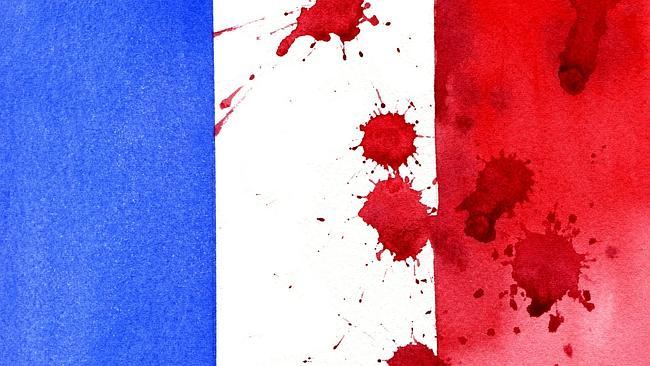
THE jihadists’ stolen Citroen had barely driven off before The Guardian moved on to the real story. “Muslims fear backlash after Cha rlie Hebdo deaths,” read the headline. Eight journalists, a caretaker, a visitor and two policemen had lost their lives. Others lay seriously wounded.
The Guardian, however, urged us to spare a thought for French Muslims. “Stigmatisation” meant they too would “pay a price for the atrocity”.
The Islamophobic backlash is a recurring nightmare for the Guardian-reading classes. They imagine that each terrorist atrocity will trigger an explosion of primeval hatred that will rip apart the social fabric and leave their multicultural project in tatters.
Last month’s Lindt Cafe siege had yet to reach its bloody conclusion when The Sydney Morning Herald published its first bracing-for-the-backlash story. Muslim leaders, it told us, were warning their communities to head straight for home after work. Like the promoters of the bizarre social media campaign, “I’ll ride with you,” the Herald assumed the worst of its fellow citizens.
Not for the first time, the Australian people rose above those dismal expectations. They reacted to the siege with sorrow, dignity and respect, just as the French did last week. When a caller named Jake launched an anti-Muslim tirade on talkback radio, 2GB’s Ray Hadley quickly brought him back into line: “If you’ve got a problem with Muslims, mate, you won’t get any traction here.”
The slaughter at Charlie Hebdo, more than any other jihadist attack on a Western target, has illuminated the fault line that divides Islamism from the rest. The enemies of harmony in France were not Marine Le Pen and her chums in the French National Front but the jihadists themselves. It was they who sought to punish free speech with bullets, they who shot men armed only with pens and they who targeted shoppers in a Kosher supermarket because they hated Jews.
The Islamists forgo the right to membership of the civilised world not because of their exoticism but because of their intolerance.
Unlike other major religions, Islam in its fundamentalist form cannot simply live and let live. It despises personal liberty and cannot cope with pluralism.
The rough justice prescribed for infidels across significant parts of the Muslim world tells of a faith that has little capacity for diversity. The act of apostasy — the renunciation of one’s religion — is a criminal offence in 23 Muslim countries.
In Egypt, Jordan and Pakistan more than three-quarters of the population favour the death penalty for apostates, according to a 2010 survey by the Pew Research Centre. Mercifully, support for this fatwa on the faithless is much weaker elsewhere.
In Turkey and Lebanon, the countries to which the majority of Australian Muslims trace their heritage, 95 per cent of Muslims are prepared to let apostates live. These are also countries where support for the modernisers far exceeds support for the traditionalists, where the majority of Muslims trust democracy and are sceptical about the role of religion in government.
Islam is, to a large extent, adapting to Australian conditions, finding its own place in an egalitarian and secular civil society. The number of radicalised Muslims is shocking but by all reports the infiltration of Islamism, when viewed in terms of the overall Muslim population, is small.
Yet last year’s Scanlon Foundation social cohesion survey reports one in four Australians view Islam as a negative force. Negative attitudes are slightly higher, incidentally, among Australians born overseas.
For the bien pensant, surveys like this are prima facie evidence of racism and intolerance in the population as a whole. Peculiarly, and for reasons not fully explained by the Guardianistas, Australians are presumed to have taken a dislike to Islam in a way they haven’t against — say — Buddhism, towards which negative feelings are held by fewer than one in 20.
Yet this ambivalence towards Islam is entirely understandable, given its relationship to the modern world. Once again the Charlie Hebdo attack paints our difficulty with Islam with clearer lines.
Charlie’s contempt for religion was indiscriminate. It would blaspheme against Jesus and impugn the reputation of the Virgin Mary as casually as it would mock Mohammed, exercising its right to give offence in every edition.
Its objection to Islam stemmed from its fervent desire to separate mosque and state. The doctrine of laïcité — the exclusion of religion from public institutions — is deeply embedded in French culture.
Australia has its own version of laïcité, stemming from its foundation as a secular, post-enlightenment state. It was five years after the establishment of the Colony of NSW before the first church was built, and when the minister, the Reverend Richard Johnson, sought reimbursement for its construction from the British government, his plea fell on deaf ears.
In civic life the principle that arguments must be won by persuasion, rather than the imposition of religious values, is firmly understood. However passionately many Australian Christians feel about abortion, for example, they recognise that the law is decided by democratic debate.
Islam, like the Christian church before it, must learn to play by these rules or forever be estranged from modernity. Devoutness must be confined to the private sphere; with few exceptions, civic affairs must be conducted without recourse to the authority of heaven.
One more thing has become abundantly clear after the Charlie attack — how much we really value free speech. The aborted attempt to amend Section 18C of the Racial Discrimination Act seems a long time ago. The earnest arguments about the limits to free speech and avoidance of offence sound parochial and ridiculous.
The 18C debate might take a different course if we start it afresh today. A week ago few Australians had encountered Charlie and its biting, caustic line in satire. Its message gets lost in translation and its illustrations may strike us as coarse. Yet in a dispute between liberty and tyranny, we know instinctively where we stand.


